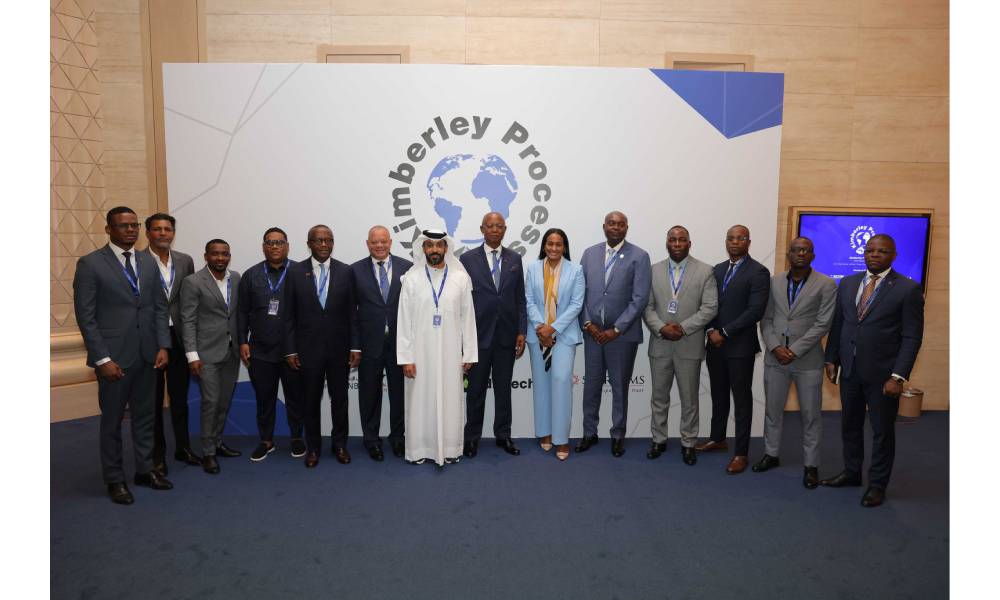The UN-mandated Kimberley Process (KP) Intersessional meeting opened in Dubai, UAE, on 13th May with resounding calls to accelerate consensus and decision-making to secure the long-term security, efficiency and operationalisation of the industry.
Hosted in Uptown Tower, Uptown Dubai, headquarters of DMCC, the KP Intersessional opening saw a global gathering of hundreds of diamond industry representatives, civil society and world governments. The UAE is currently chairing the UN-mandated KP for a historic second time in 2024 under DMCC’s CEO and Executive Chairman Ahmed Bin Sulayem.
Under the “Year of Delivery”, the UAE is aiming to overcome political gridlocks and drive concrete actions, including the establishment of a permanent secretariat in Botswana since achieved in April, the completion of the KP review and reform cycle, and the long term digitalisation of the KP.
With a week-long series of discussions, including an unprecedented special plenary on Friday, the opening session witnessed clear calls to tackle the pressing issues impacting the global diamond trade through greater consensus and accelerated decision-making.
During his special address, His Excellency Dr Thani bin Ahmed Al Zeyoudi, UAE Minister of State for Foreign Trade, said: “Over the past 21 years, the Kimberley Process has fulfilled a vital role. It has stemmed the trade of conflict diamonds and reduced the incentives to smugglers. By enabling producers to extract the full value of their natural resources, the Kimberley Process has helped countries around the world, and particularly in Africa, use their diamond revenues to develop and prosper. We must continue to focus on consensus and collaboration and ensure we strengthen and refine the functioning of the body under the Review and Reform cycle.”
Ahmed Bin Sulayem, the UAE’s Chair of the Kimberley Process, said: “For the first time in the KP’s history, we are hosting a Special Session of Plenary this Friday, to pass key Administrative Decisions and acknowledge best practices. We may not always get consensus, but we must always search for solutions which strengthen the KP and provide transparency and accountability for our actions. We must implement best practices and take bold decisions for our future today.”
Feriel Zerouki, President of the World Diamond Council, spoke of key trends within the global diamond industry and called on participants to achieve progress during the intersessional week.
She said: “Global events outside our control have dampened demand for diamond jewellery in many locations around the world. However, it’s important to remember that this is a long-term and cyclical business … the Special Session of the Plenary at this Intersessional is significant because, for the first time in the history of the KP, it will be possible to make decisions mid-year and, thereby, push for progress during this important ‘Year of Delivery’.”
Jaff Bamenjo, representing the Civil Society Coalition, said: “The Coalition calls on the KP to embrace a much more comprehensive approach. The Kimberley Process should not just be about banning diamonds funding rebel groups but also about harnessing diamond mining to drive development and enhance the economic, social, and physical well-being of communities.”
The UAE was the first and only Arab country to Chair the Kimberley Process in 2016, an international group tasked with regulating the global diamond trade. Established in 2003 by the United Nations, 85 participating countries seek to ensure that unregulated rough diamonds do not enter the legitimate diamond market as a means to finance conflict. In 2024, the UAE once again assumed the chairmanship of the Kimberley Process.

